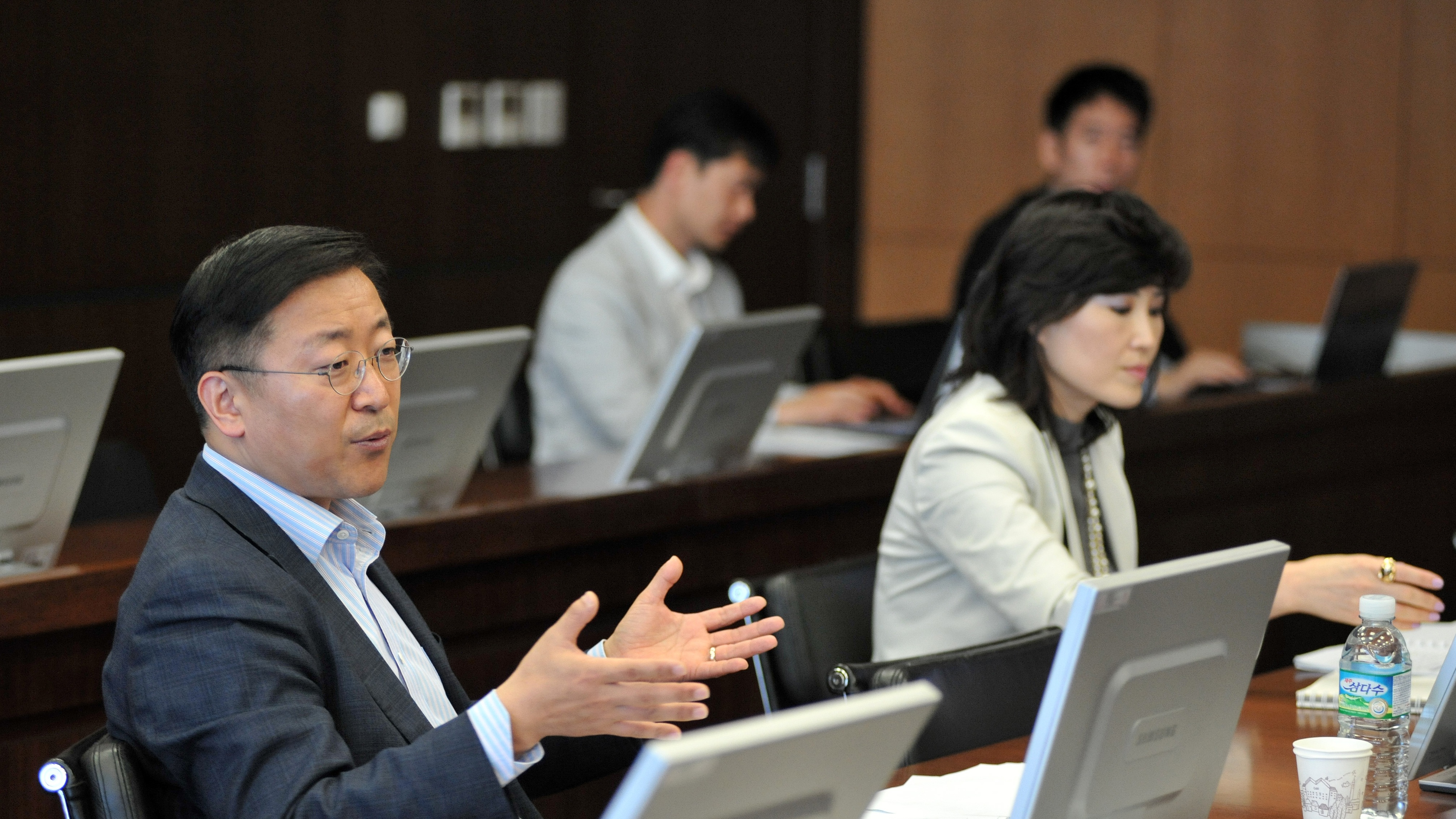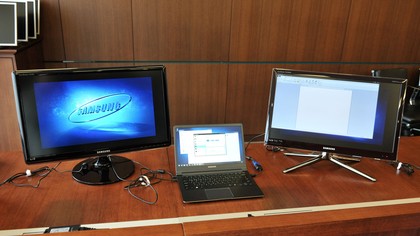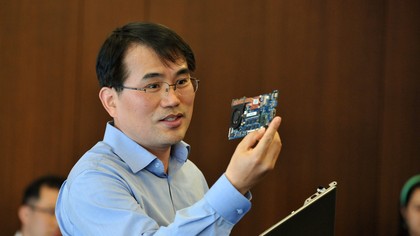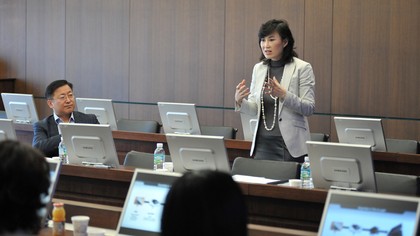Samsung: 'premium quality' the key to our success in laptops
Samsung execs talk up R&D as the key

A forty-minute drive south from Seoul, South Korea's capital, along congested highways and complicated junctions brings you to a city called Suwon.
It's there you'll find the HQ of Samsung, one of the biggest electronics brands in the world. The Samsung Digital City is a self-contained complex that welcomes in 40,000 employees each day and boasts office towers, labs, testing facilities, museums and even basketball courts and a football field.
The company, founded back in 1969, is currently riding high after a series of excellent products that include the seminal Galaxy S2 smartphone, its successor the Galaxy S3 and a host of well-crafted laptops culminating in the new Samsung Series 9 that was released here in April. In 2009, Samsung overtook HP to become the world's leading IT prducer.
Spend a bit of time with some of Samsung's executives inside the Digitial City and it swiftly becomes apparent the company is desperate to harness this momentum and retain top-spot in the eyes of us fickle consumers.
"Our model is really about a premium brand and premium quality," said David Song, senior vice president PC sales and marketing for Samsung's IT Solutions Business. "When you have something great, you feel like you can do more."
After the success of the Galaxy SII, the Galaxy Nexus and the Galaxy Note and with the Galaxy SIII just released, the focus for Samsung is to train the limelight on its laptop range.

The Series 9 is currently in its second iteration, and is referred to by Mr Song as being beyond an Ultrabook. Although Samsung has produced a machine for Intel's new category, the Series 5 Ultrabook, the Series 9 is undoubtedly the jewel in the crown.
Are you a pro? Subscribe to our newsletter
Sign up to the TechRadar Pro newsletter to get all the top news, opinion, features and guidance your business needs to succeed!
Crafted from a single block of aluminium the Series 9 is only 14.9mm thin and weighs 1.65kg. The 256GB SSD and Intel Core i7 processor means it boots in an estimated 9.1 seconds and, according to Samsung at least, will run for up to 10 hours on its lithium polymer battery.
As good as the Series 9 is, its reign is threatened by the next wave of Ultrabooks – such as the Asus Zenbook Prime that was recently announced at Computex in Taipei. These new models will be packing Full HD screens, Ivy Bridge CPUs and, of course, Windows 8.
"Windows 8 and Ultrabooks will change the user's experience," Mr Song confirms, "but slim and light is our winning horse."
To emphasise this, Kevin Lee, Vice President of IT Solutions Business, and the man in charge of research and development on Samsung's laptops began to lay the groundwork for the next iteration of the Series 9, and what we can expect.

According to Mr Lee, the new(er) Series 9 will likely keep the same chassis. Meaning, we could see both 15" and 13" models reproduced for a third generation. While the current Series 9 will hopefully get an Ivy Bride update before IFA 2012 in August, the third generation will come with Intel's 22nm Core i7 chip straight out of the packet.
There will be a Full HD 1,920 x 1,080 screen and Mr Lee confirmed research is currently underway to examine the possibility of including an OLED screen into the third generation Series 9. Unfortunately, no mention was made of a built-in touchscreen for use with the Metro UI built into Windows 8. Given that Asus already has this as a priority for the Asus Zenbook Prime, it would seem like an obvious development on Samsung's part but at present, we're left to speculate on that one.

In a company with 206,000 employees worldwide and 28,000 patents registered in the US alone, it doesn't seem unreasonable to expect a few extra juicy features on a new iteration of this laptop but given the rather, ahem, competitive nature of consumer electronics big business, our executives weren't keen to divulge too much more.
Still, given that only 3% of Samsung's laptop sales are generated by products costing over $1,000, its understandable that a shift to a more premium identity is part of the company's long term plan.
"We did a survey in the United States, with the result of seeing how happy with their premium devices, and that's what we can learn from," said Won Park-Costof, vice president of marketing for Samsung's IT Solutions business.
"I feel Samsung PCs are well poised to take advantage over the competition, taking the lead from our smartphones and TVs. We are well prepared," she said.